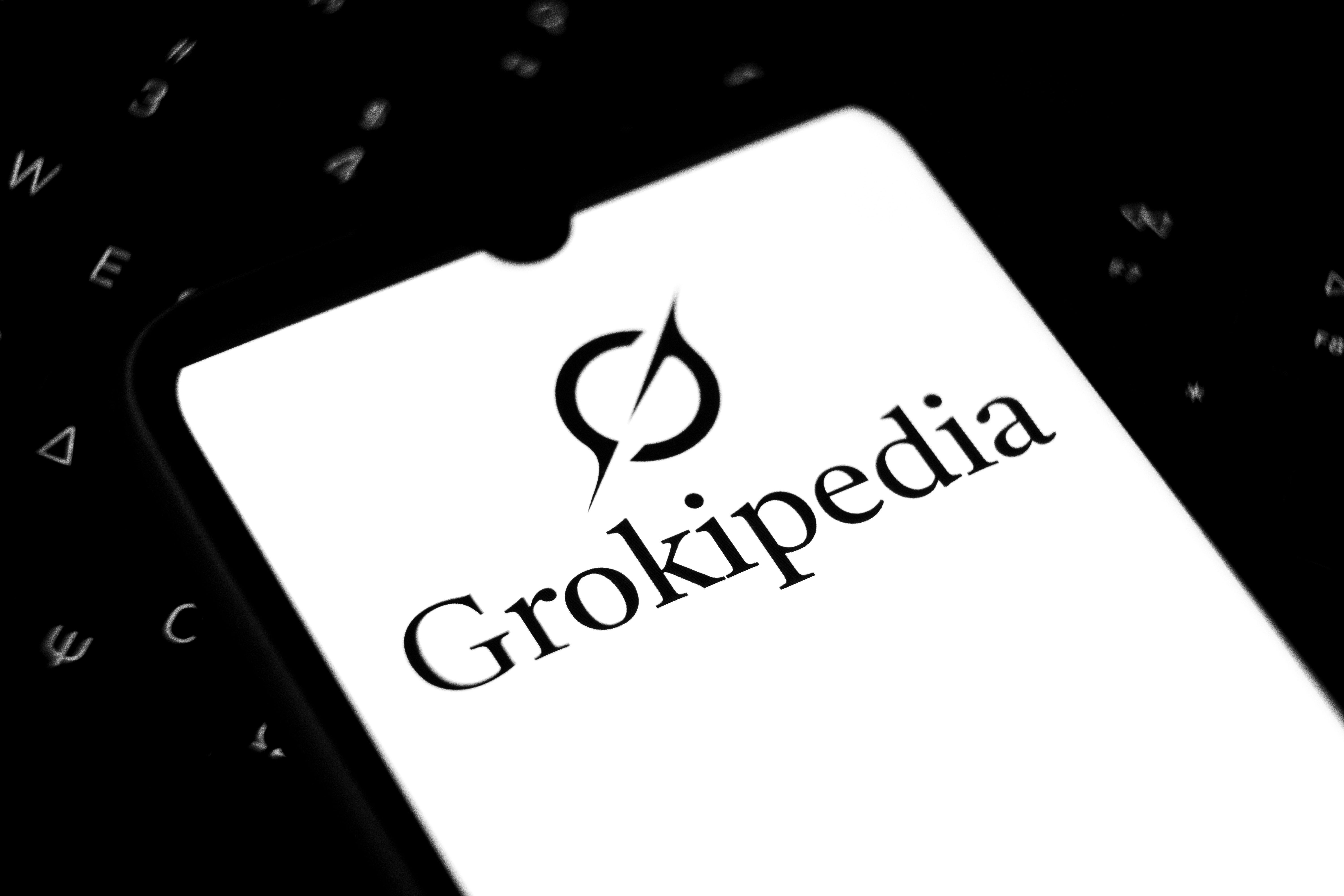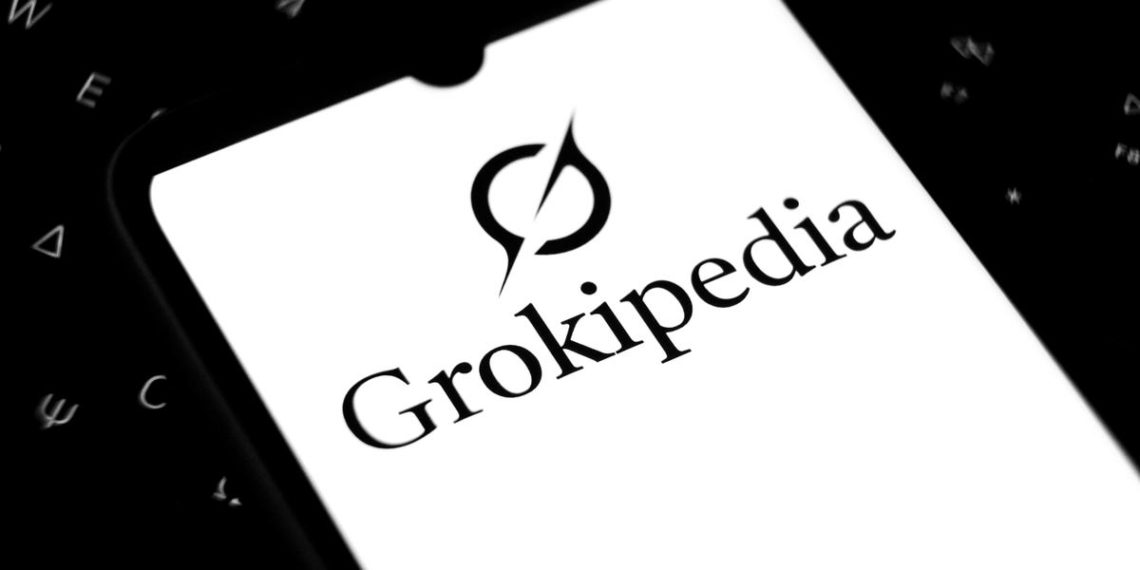
Nikolas Kokovlis/NurPhoto via Getty Images
- Grokipedia is Elon Musk’s alternative to Wikipedia, focusing on less “woke” content.
- A lot of the non-political entries are just direct copies of Wikipedia.
- But in certain cases, Grokipedia improved the Wikipedia page — padding out information and sources.
I’ll admit I’m fairly skeptical of the results of xAI’s new Grokipedia and its mission to be an anti-woke version of Wikipedia.
And yet, after testing it out a little bit, I was surprised to find that, in certain cases, it seems better than Wikipedia.
Of course, its entries for hot-button things like “Elon Musk” or “gender” are exactly what you’d expect for its “unbiased” mission. It hurts my head to think about this too much, so I won’t linger on this.
But most pages are not hotbeds of “wokism,” so they end up almost word-for-word identical to Wikipedia. (Grokipedia is able to essentially copy from Wikipedia because Wikipedia allows itself to be scraped by AI bots). So far, Grokipedia has about 800,000 pages, whereas Wikipedia’s English-language version has over 7 million.
xAI did not respond to a request for comment on how Grokipedia pages were chosen.
For example, one of the first things I compared was the entries for the 2008 animated movie “Bolt”, where a superhero dog is voiced by John Travolta. (I had happened to look at the Wikipedia page for it while my kid was watching the movie recently.) As you can probably imagine, this isn’t a particularly political entry.
Like most movie entries, Grokipedia’s has a plot summary, some production details, a cast list, and an overview of the critical reception. (I asked ChatGPT to compare the two articles to see which had more “bias,” and in a case of AI-on-AI crime, ChatGPT accused Grok of having a pro-corporate bias by taking only Disney execs’ word on some of the elements of production. Ha!)
Where Elon Musk might be onto something with Grokipedia
After browsing around Grokipedia for a while, I came across some things that seemed particularly promising.
The types of pages where Grokipedia seemed to beat Wikipedia were the unloved, scraggly entries on Wikipedia. You know the kind — where it truly seems like a bunch of people added in a single sentence once a year for the last 15 years. Where the writing lacks cohesion, tiny details are given equal prominence alongside big facts, and the result is generally a mess.
Here’s an example of one of these. I had recently looked up the Wikipedia entry for the Dana Hall School, a fancy girls’ private school near Boston where the recent Nobel Peace Prize winner attended. The entry isn’t short, but it’s disorganized, with a lengthy “history” section that reads like a list of disjointed bullet points.
Meanwhile, the Grokipedia version felt much more thorough and organized into sections about its history, academics, facilities, admissions, and impact. This is one of those things where there is lots of solid information about it existing out there on the internet — more than has been added so far to the Wikipedia page by real humans — and an AI can crawl the web to find these sources and turn it into text. (Note: I did not fact-check Grokipedia’s entry, and it’s totally possible it got all sorts of stuff wrong!)
I will note that there are some unusual aspects to the entry, however. There’s a whole section that talks about the arguments for and against single-sex education and a discussion of the school’s racial diversity that has more than a whiff of an anti-DEI agenda. My head hurts again, so let’s set that aside for now.
AI might be of some help to Wikipedia
What I can see is a version where AI is able to flesh out certain types of articles and improve them with additional information from reliable sources. In my poking around, I found a few other cases like this: entries for small towns, which are often sparse on Wikipedia, are filled out more robustly on Grokipedia.
One interesting example: By clicking “Random article” on Wikipedia and searching for corresponding Grokipedia entries, I found a curious case where the two entries differ slightly.
For the case of Baroness Marie Vetsera, a woman involved in a minor 18th-century royal scandal, Wikipedia had a substantial entry. But Grokipedia’s was even longer, and formatted quite differently — and frankly, I thought it told a better narrative of the baroness’s untimely demise. But it also had some bad quirks. For example, Grokipedia used a citation for a Facebook page about royal history that seemed to be viral clickbait written by AI.
Obviously, Grokipedia is not perfect — far, far from it. But it’s an interesting idea of how AI could help to improve Wikipedia itself. It could smooth out stilted writing or pad out pages that need improving.
Jimmy Wales, the founder of Wikimedia, the nonprofit that runs Wikipedia, recently appeared on NPR’s Open to Debate show, where he said that he’s not opposed to AI helping out. He gives an example of an editor looking at a page that needs improvement and asking AI to identify additional relevant facts in the sources already on the page. Then the editor could verify those and add them himself. Seems reasonable!
I’m not planning on switching to Grokipedia for factual information anytime soon, and I don’t recommend you do, either.
In a way, the best outcome would be for Wikipedia to observe what does or doesn’t work on Grokipedia as a sort of sandbox, and take lessons from it.
Read the original article on Business Insider
The post I tried Grokipedia and I think it beats Wikipedia — in some cases. (Citation needed.) appeared first on Business Insider.




